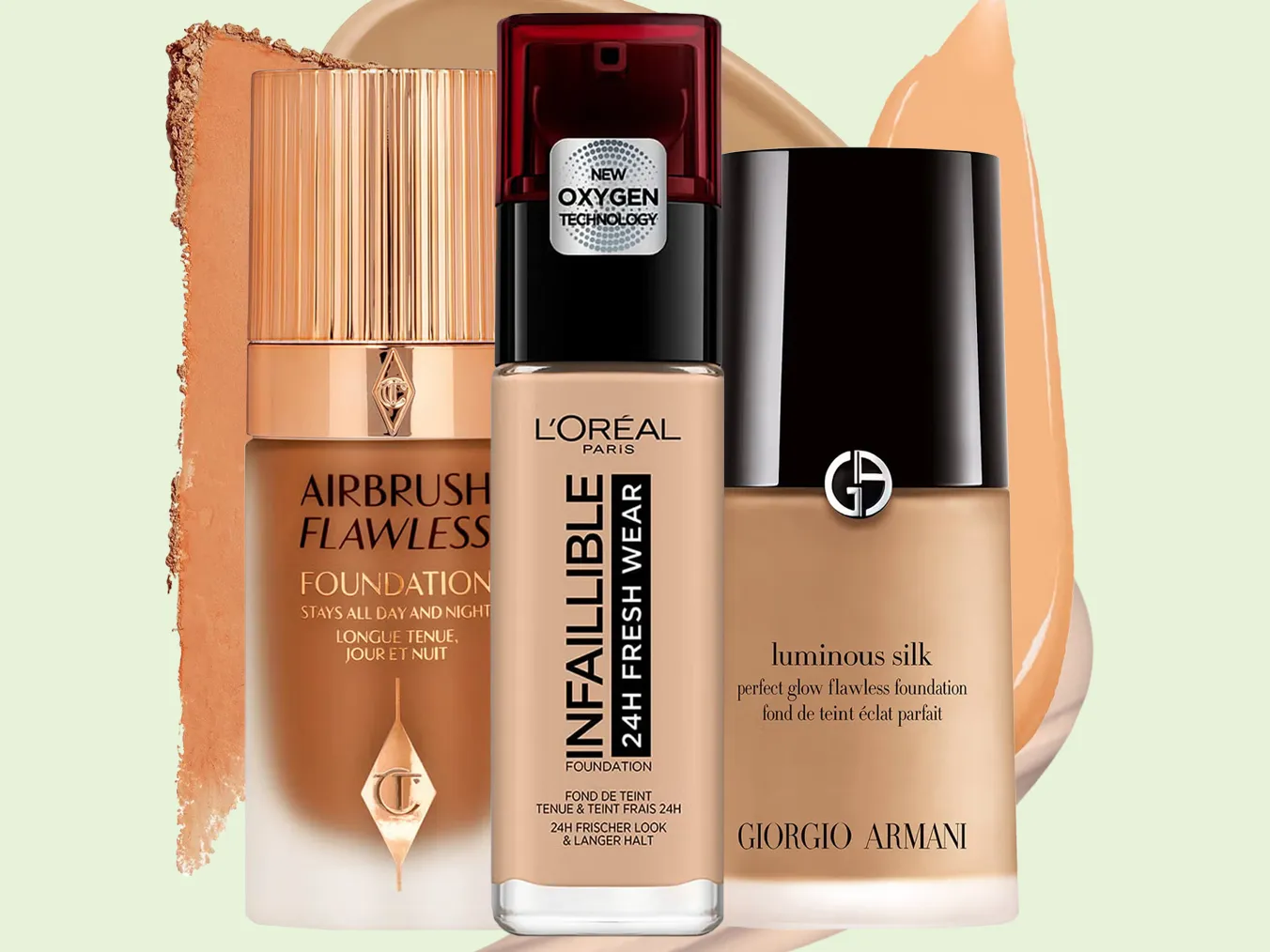Building a strong foundation for skin care is vital for maintaining healthy, youthful, and radiant skin. It starts with a comprehensive approach that considers your skin type, concerns, and goals. In this guide, we provide a complete overview of how to establish a robust skincare routine that meets your needs and enhances your natural beauty.
Understanding Your Skin Type
The first step in building a strong foundation for skin care is identifying your skin type. This will help tailor a regimen that is most effective for you. The primary skin types are:
- Normal: Well-balanced skin with minimal imperfections.
- Dry: Skin that feels tight, flaky, or rough, often with visible lines.
- Oily: Skin that appears shiny, with larger pores and a tendency for acne.
- Combination: A mix of dry and oily areas, typically with an oily T-zone (forehead, nose, and chin) and drier cheeks.
- Sensitive: Skin that reacts easily to products or environmental factors, resulting in redness or irritation.
Creating a Basic Skin Care Routine
Once you identify your skin type, you can start building a skincare routine that suits your needs. A basic routine includes the following steps:
- Cleansing: Use a gentle cleanser suitable for your skin type to remove dirt, oil, and makeup.
- Toning: A toner balances your skin’s pH and prepares it for other products.
- Moisturizing: Choose a moisturizer that hydrates your skin without clogging pores.
- Sun Protection: Apply broad-spectrum sunscreen with an SPF of at least 30 daily to protect against UV damage.
Customizing Your Routine
Tailor your skin care regimen based on specific concerns you may have, such as acne, aging, or hyperpigmentation. Here’s how you can customize your routine:
- For Acne-Prone Skin: Look for non-comedogenic products and use ingredients like salicylic acid or benzoyl peroxide to help control breakouts.
- For Anti-Aging: Incorporate retinol or peptides into your routine to stimulate collagen production and reduce the appearance of fine lines.
- For Hyperpigmentation: Use products containing vitamin C, niacinamide, or alpha-arbutin to brighten and even out your complexion.
Incorporating Additional Steps
To further enhance your skincare routine, consider adding these extra steps:
- Exfoliation: Exfoliate once or twice a week to remove dead skin cells and improve texture. Use either chemical exfoliants (like AHAs or BHAs) or physical exfoliants (like scrubs).
- Serums: Apply targeted serums to address specific skin concerns, such as hydration, brightening, or firming.
- Eye Cream: Use an eye cream to moisturize the delicate skin around your eyes and reduce puffiness or dark circles.
- Face Masks: Treat yourself to a face mask once or twice a week to boost your skin’s health and glow.
Practicing Good Skin Care Habits
Building a strong foundation for skin care also involves adopting good habits that support overall skin health:
- Hydration: Drink plenty of water to keep your skin hydrated from the inside out.
- Healthy Diet: Consume a balanced diet rich in antioxidants and essential fatty acids to nourish your skin.
- Sleep: Aim for 7-9 hours of quality sleep each night to allow your skin to repair and rejuvenate.
- Stress Management: Practice stress-reducing techniques like meditation or yoga to maintain hormonal balance and prevent skin issues.
Avoiding Common Skin Care Mistakes
As you establish your skincare routine, be mindful of these common mistakes:
- Over-exfoliating: Too much exfoliation can irritate your skin and damage its natural barrier.
- Using Harsh Ingredients: Avoid products with alcohol, artificial fragrances, and other irritants, especially if you have sensitive skin.
- Neglecting Sun Protection: Skipping sunscreen can lead to premature aging and increase the risk of skin cancer.

Staying Informed About Skin Care Trends
As the skin care industry evolves, new products and treatments are introduced regularly. Staying informed about the latest trends and technologies can help you discover innovative solutions to address your skincare concerns. Here are some current trends to consider:
- Clean Beauty: Focus on using products with minimal and safe ingredients that are gentle on your skin and the environment.
- Probiotic Skincare: Probiotics can help balance your skin’s microbiome, promoting healthy, resilient skin.
- Adaptogens: These natural ingredients, like ashwagandha and ginseng, can help your skin adapt to stressors and improve its overall health.
Evaluating and Updating Your Routine
Regularly evaluating your skincare routine is essential to ensure it remains effective. Consider the following when reviewing your regimen:
- Product Performance: Assess how your current products are performing and whether they meet your skincare goals.
- Seasonal Adjustments: Change your routine based on the season, such as using heavier moisturizers in winter and lighter products in summer.
- New Concerns: Address any new skin concerns that may arise over time, such as changes in texture, tone, or sensitivity.
Exploring Advanced Treatments
In addition to your daily skincare routine, advanced treatments can provide more targeted and intensive solutions for specific concerns:
- Chemical Peels: These treatments help to exfoliate and rejuvenate the skin, improving tone and texture.
- Microdermabrasion: This non-invasive procedure exfoliates the skin’s surface, promoting a smoother, more even complexion.
- Laser Therapy: Laser treatments can effectively target pigmentation, scars, and other skin imperfections.
Consulting with a Skin Care Professional
For the best results, consider consulting with a dermatologist or licensed skin care professional. They can provide personalized recommendations and treatments tailored to your skin type and concerns.
Prioritizing Self-Care and Well-Being
Remember that a strong foundation for skin care also includes taking care of your overall well-being. Prioritize self-care practices that contribute to healthy, glowing skin:
- Mental Health: Manage stress and prioritize your mental health for better skin health.
- Physical Activity: Exercise regularly to promote circulation and oxygenate your skin.
- Relaxation: Make time for relaxation and self-care activities to support your skin’s natural repair process.
In addition to maintaining a consistent skincare routine and staying updated on trends, there are other ways you can continue to build a strong foundation for your skin care regimen. These strategies will help you get the most out of your products and ensure your skin stays healthy and radiant.

Understanding Skin Care Ingredients
Knowing the key ingredients in your skin care products is essential for selecting the right products for your skin type and concerns. Here are some common ingredients and their benefits:
- Hyaluronic Acid: This powerful humectant draws moisture to the skin, providing hydration and plumpness.
- Niacinamide: Also known as vitamin B3, niacinamide helps improve skin texture, minimize pores, and reduce redness.
- Alpha Hydroxy Acids (AHAs): AHAs, such as glycolic and lactic acid, exfoliate the skin and promote cell turnover.
- Beta Hydroxy Acids (BHAs): BHAs, such as salicylic acid, target acne, and clogged pores, making them ideal for oily and acne-prone skin.
- Peptides: Peptides help stimulate collagen production and improve skin firmness, making them effective for anti-aging.
- Antioxidants: Ingredients like vitamin C and green tea extract protect the skin from free radical damage and brighten the complexion.
Patch Testing New Products
Before introducing new products into your routine, it’s important to conduct a patch test. Apply a small amount of the product to a discreet area of skin (such as the inner arm) and wait 24-48 hours to check for any adverse reactions.
Being Mindful of Layering Products
When layering skincare products, it’s important to consider the order in which you apply them. Generally, apply products from thinnest to thickest consistency:
- Cleanser
- Toner
- Serum
- Moisturizer
- Sunscreen
This order ensures that each product can effectively penetrate the skin and provide its intended benefits.
Monitoring Your Skin’s Progress
Keep track of your skin’s progress as you follow your routine. Take note of any improvements or changes, and adjust your regimen as needed. If you experience any persistent issues or negative reactions, consult a skin care professional.
Staying Vigilant Against Misinformation
With the abundance of skin care information available, it’s crucial to discern credible sources from potentially misleading ones. Look for information from reputable sources, such as dermatologists or established brands, and be cautious of sensationalized claims.
Embracing Skin Positivity
As you build your skincare routine, remember to embrace skin positivity and appreciate your natural beauty. It’s important to recognize that everyone’s skin is unique, and there’s no one-size-fits-all approach. Focus on your own journey to healthy, happy skin.
Continued Education and Research
The world of skincare is constantly evolving, with new research and developments emerging regularly. Continuing your education and staying informed about the latest advancements can help you make informed decisions about your skincare routine.
Seeking Professional Advice When Needed
While building a strong foundation for skin care, it’s important to know when to seek professional advice. If you experience persistent skin issues or concerns, consult a dermatologist for expert guidance and personalized recommendations.
By incorporating these strategies into your skincare journey, you can establish a comprehensive and effective routine that promotes healthy, glowing skin for years to come.
